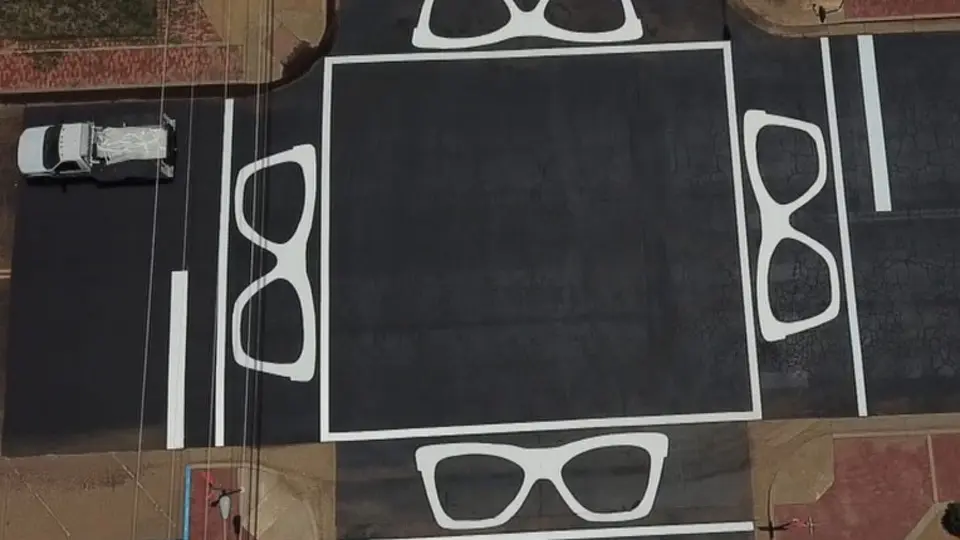“How a flock of Canadian ostriches became a favorite MAHA cause”.
“My inland neighbors and Republicans across the county should take Prop 50 as a wake-up call. If voters want their ballots to count under fairly drawn maps, there’s a decades-old fight they can join. Unfortunately, their party has been the villain of that story so far. I would say it’s never too late to do the right thing, but—given the year our democracy has had—I’ll stick with it’s not too late yet. We can still call a ceasefire, name fairness a bipartisan virtue, and let voters pick their politicians. We can still get out of this mess.”
“Researchers at the Cooperative Institute for Severe and High-Impact Weather Research and Operations (CIWRO) at the University of Oklahoma are shedding new light on derechos — rare, rapid-moving windstorms capable of causing extensive damage across hundreds of miles.” Everyone in Houston looks forward to hearing more about this.
“Seven Reasons Listicles Didn’t Suck, Actually (And One Of Them May Surprise You)”.
“This return represents more than the restoration of land — it is the restoration of balance, dignity, and our sacred connection to the places our ancestors once walked. The Franciscan Sisters’ act of generosity and courage stands as an example of what true healing and partnership can look like. We are proud to welcome Marywood home, to ensure it continues to serve future generations of the Lac du Flambeau people.”
RIP, Lenny Wilkens, basketball Hall of Famer as a player and as a coach, who also won two Olympic gold medals as the Team USA coach.
“I have been on two humanitarian-esque missions with the guard, which were awesome, doing the things you see on the commercial, helping these communities. “And then you want me to go pick up trash and dissuade homeless people in D.C. at gunpoint. Like, no dude. It’s so disheartening every time I see another city — and I just wonder, ‘who’s going to stand up to this?'”
“As the government relaxes efficiency targets, progress will stall and car buyers will get stuck with cars that cost more to operate.”
“TikTok users have decided that November is the month for memes about the Edmund Fitzgerald“.
“How much easier to say that you think women are not that smart, or that we’re rather bad people, than to admit that male dominance suited you and that you’ll really miss it. And those who’ll miss it, unfortunately, include certain women. Women like Helen Andrews like to cozy up to male power in order to enjoy a shred of it, to bask in the pallid light of conservative male approval. I am sure they often don’t know why they’re doing it. That doesn’t make it any better.”
“Guardians’ Emmanuel Clase, Luis Ortiz indicted on charges linked to illegal sports betting”. See evidence of the charges here. As Michael Buamann says, this is “a breach of public trust and a blow to Major League Baseball’s credibility.”
“This show was made by humans“. As was and is this blog, and this linkdump.
“The U.S. government is reportedly preparing to ban the sale of wireless routers and other networking gear from TP-Link Systems, a tech company that currently enjoys an estimated 50% market share among home users and small businesses. Experts say while the proposed ban may have more to do with TP-Link’s ties to China than any specific technical threats, much of the rest of the industry serving this market also sources hardware from China and ships products that are insecure fresh out of the box.”
RIP, Sally Kirkland, Oscar-nominate actor known for The Way We Were, The Sting, and A Star Is Born, among others.
RIP, Estine Davis, pioneering El Paso businesswoman, founder of the Miss Black El Paso Pageant, upcoming inductee to the El Paso Black Hall of Fame, and quite the character as documented in this obituary.
RIP, Cleo Hearn, founder of Cowboys of Color Rodeo, member of the Texas Black Sports Hall of Fame and the National Cowboy Museum and Hall of Fame.
“I think of it as: You live in a disaster zone. The floods and hurricanes are going to be twice as strong and three times as frequent going forward. So you’ve got to retrofit the house (this means legislation, mostly) and get in the habit of handling natural disasters (this means their approach to power). So what counts in this context? Here are five things I would want to ask and get an answer on from every Democratic senator or candidate. Think of it another way: You’re new management coming in to turn around a failing company. You want to sit down with every employee right after you take over to see if they’re part of the solution or part of the problem. That’s the Status Interview. Here are the five questions.”
“The most obvious reform that would make sports betting a bit safer is to federally ban credit card deposits for gambling accounts. The next most obvious thing would be to acknowledge that even a libertarian approach to sports betting does not mean people need to be allowed to bet on a specific pitch in an AL Central game in June.”
RIP, Cleto Escobedo III, musician and bandleader for Jimmy Kimmel Live!.
RIP, Michael Ray Richardson, four-time NBA All Star who was banned by the league (and then later reinstated, though he played in Europe after that) for violations of their drug policy.
“i want you to realize that that dog that hasn’t barked is trump.”
“The Secret History of Santacon, America’s Most Hated Christmas Party”.
“But I’m not sure those writers fully appreciate that they’ve written an accurate summary not just of this one weird individual, but of the overwhelming character of white evangelical discipleship and white evangelical devotion, practice, hermeneutics, orthodoxy, orthopraxy, spirituality, piety, ethics, and soteriology.”
“Three original paintings by Bob Ross were auctioned Tuesday for more than $600,000 combined as part of a series to help raise money for public broadcasting after the Trump administration cut funding.”
“You simply cannot create a culture or a party of wholesale male entitlement and not wind up with women and girls paying the price — being the ones whose bodies, livelihoods, and lives those men feel entitled to.”
RIP, Dave Burgess, singer, songwriter, guitarist for The Champs, whose best known song by far is “Tequila”.
“If you come across anyone who really wants to make AI Dead Loved Ones, please tell them forcefully that humanity has its back against the wall and however the battle goes we will remember the names of our deserters. We must recognize what’s sane and insane if we are to have any hope of pulling out of this tailspin.”
RIP, Todd Snider, alt-country singer/songwriter.
RIP, John Beam, athletic director and former football coach at Laney College in Oakland, Calif. who gained national prominence for his appearance in Netflix’s docuseries “Last Chance U”.
RIP, Kenny Easley, Hall of Fame safety for the Seattle Seahawks.
RIP, Brigitte Friedmann Altman, Holocaust survivor, linguist, translator, unofficial welcoming committee for Fort Worth’s arts scene. Damn, we lost some amazing people this week.





















